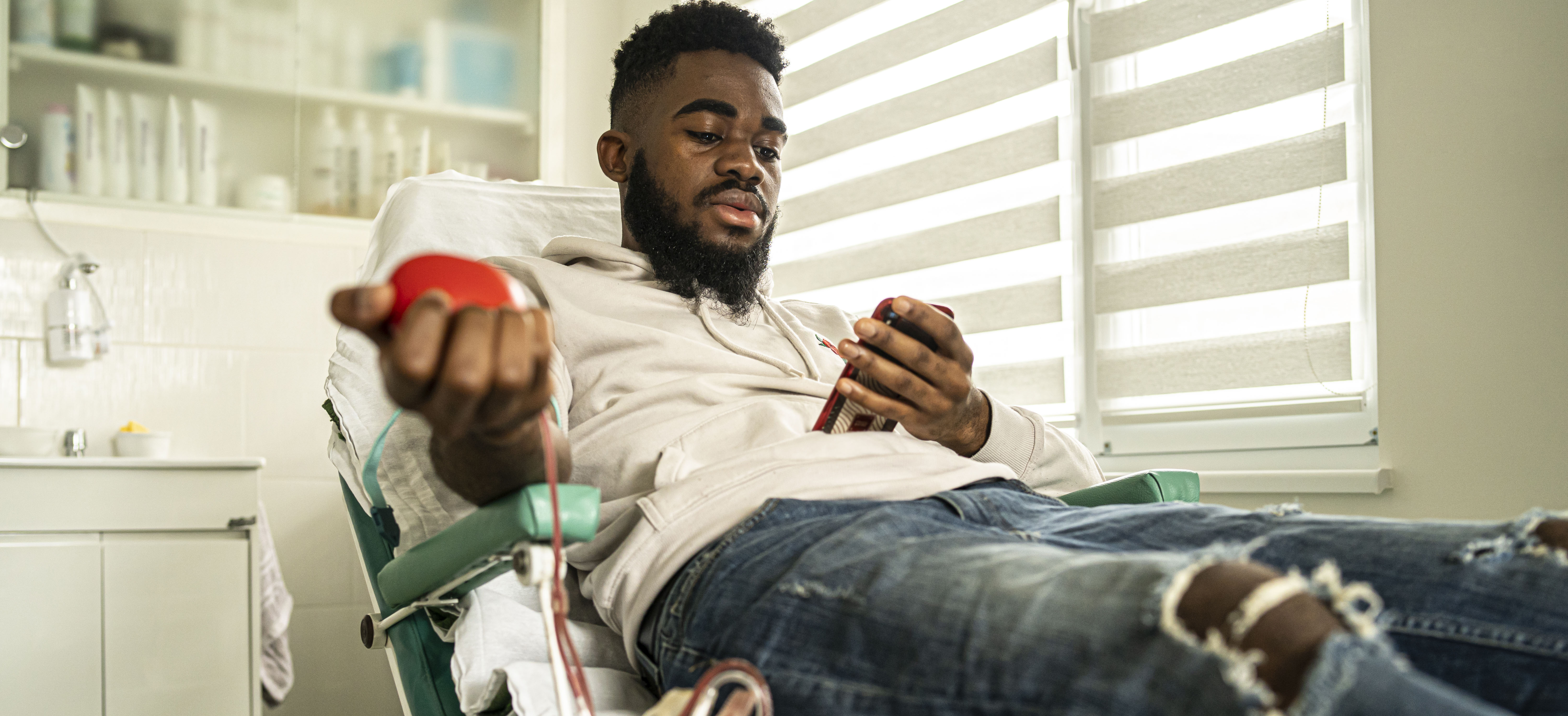
Sickle cell disease can cause complications from head to toe. While episodes of severe pain and exhaustion (lasting for hours or days) can be crippling, people with sickle cell disease are also prone to acute chest syndrome (pneumonia), vision problems, damage to major organs and even stroke, among others. Hospitalizations can be frequent, life disruptions all too familiar.
This is a scary thought for anyone, especially kids – but there may be a way for you to help.
It’s the most common inherited blood disorder. Instead of the red blood cells being circular and flexible, they’re sickle or crescent moon-shaped, stiff and sticky, and don’t do a good job of carrying oxygen throughout the body.
“These sickle-shaped cells can clump together and get clogged in small blood vessels, preventing the blood from flowing throughout the body as it should,” explained Dr. India Sisler, clinical director of pediatric hematology and oncology. “When parts of the body are deprived of oxygen, that’s when pain crises, swelling, infection, organ damage and other serious consequences occur.”
More than half of the 320 kids and teens who come to CHoR for sickle cell care are prescribed hydroxyurea, a medicine that helps red blood cells stay round and flexible instead of becoming sickle shaped. While not a cure, when taken as instructed hydroxyurea can greatly reduce pain and limit complications.
Many people with sickle cell disease require life-saving blood transfusions to continue healthy functioning. This means they depend on individuals of similar ethnic background, who have the same blood make-up, to donate blood for these transfusions.
According to the Centers for Disease Control and Prevention, sickle cell disease is most common among African Americans (approximately 1 out of every 365 births), followed by Hispanic Americans (about 1 out of every 16,300 births).
If you’re a healthy adult – especially a Black or Hispanic adult – please consider donating blood through the American Red Cross. One donation can save up to three lives – and prevent pain, stroke and other serious complications along the way.
CHoR will be one of the first 10 clinical sites to join American Society of Hematology’s (ASH) RC Sickle Cell Disease Clinical Trials Network. The sites will be able to enroll children and adults living with sickle cell disease in clinical trials as part of an unprecedented national effort to streamline operations and facilitate data sharing to expedite the development of new treatments for this disease.